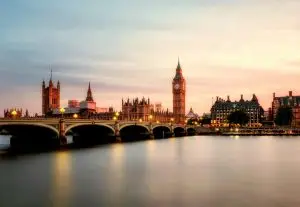On 18 August 2020, the Government announced the creation of a new public health organisation, then called the National Institute for Health Protection (NIHP), that would replace and combine the responsibilities of Public Health England (PHE), NHS Test and Trade, and the Joint Biosecurity Centre (JBC).[1]
On 1 April 2021, Dr Jenny Harries OBE, the former Deputy Chief Medical Officer for England[2], marked the official launch of the new UK Health Security Agency (UKHSA)[3] and it was announced that Dr Harries would lead this new agency, formerly called the NIHP, in planning for and preventing external health threats to the UK.[4] The NIHP had started work immediately in August 2020; the new organisation was formalised and fully operational when it became the UKHSA in April 2021.
WHAT IS THE UKHSA’s PURPOSE?
The Health Secretary, Matt Hancock, described the UKHSA’s purpose as offering a ‘permanent standing capacity to plan, prevent and respond to external threats to health’.[5] The organisation will aim to bring together capacity from across the UK and devolved governments to plan for the next pandemic, design ways of protecting the nation’s health and then deploy those strategies when the time comes.
COVID-19 has shown the enormous damage that a failure to prepare adequately for a pandemic can bring; the Joint Committee on National Security Strategy stated that there were ‘profound shortcomings’[6] in the Government’s preparations for a pandemic. The UKHSA will seek to address these weaknesses by providing more agile prepared responses to new and emerging threats that work with academia, industry and local communities, and can be rapidly scaled in the face of a new pandemic.
WHAT IS THE UKHSA REPLACING?
The UKHSA will bring together the test and contact tracing, data analytics, and genomic surveillance capability of NHS Test and Trace, PHE, and the JBC. Responsibility for emergency preparedness, research and response to health threats will also fall within the remit of the UKHSA. The new organisation will be responsible for providing the specialist scientific advice on global health threats that previously rested with the three different organisations. By combining and replacing the responsibilities of these organisations, the Government hopes to ‘give ourselves the best chance of beating this virus once and for all’.[7]
WHAT TOOLS WILL THE UKHSA HAVE AT ITS DISPOSAL?
The UKHSA brings the JBC, the COVID-19 testing and contact tracing programme (currently within the NHS), various research and reference laboratories and the Centre for Radiation, Chemical and Environmental Hazards all under one agency.
In addition to the institutional tools at its disposal, it is the Government’s ambition for the UKHSA to ‘hire the very best team possible from around the world’.[8] Led by Dr Harries, the Government hopes to develop a culture of vigilance and scientific excellence focused on tackling future and current pandemics. The pandemic has shown a number of relatively unknown public servants step up and demonstrate leadership under immense national crisis. Dr Harries can be classed among this cohort and has been justly rewarded for her work since COVID-19 arrived in the UK.
BREVIA HEALTH PROVIDES STRAIGHTFORWARD POLITICAL AND COMMUNICATIONS SUPPORT TO BUSINESSES AND ORGANISATIONS.
If you would like to schedule a call with the Brevia Health team, please email: contact@brevia.co.uk
[1] Government creates new National Institute for Health Protection, DHSC, 18 August 2020, link
[2] Dr Jenny Harries OBE, Gov.UK, [Accessed] 8 April 2021, link
[3] Dr Jenny Harries marks official launch of UK Health Security Agency, PHE, 1 April 2021, link
[4] New UK Health Security Agency to lead response to future health threats, DHSC, 24 March 2021, link
[5] Ibid
[6] Government failed to act on its security plans for a pandemic, Joint Committee on the National Security Strategy, 18 December 2020, link
[7] Government creates new National Institute for Health Protection, DHSC, 18 August 2020, link
[8] Plan, prevent and respond: reforming health security, DHSC, 24 March 2021, link




